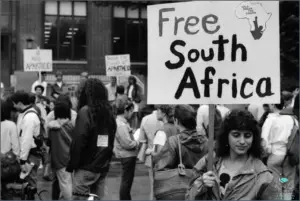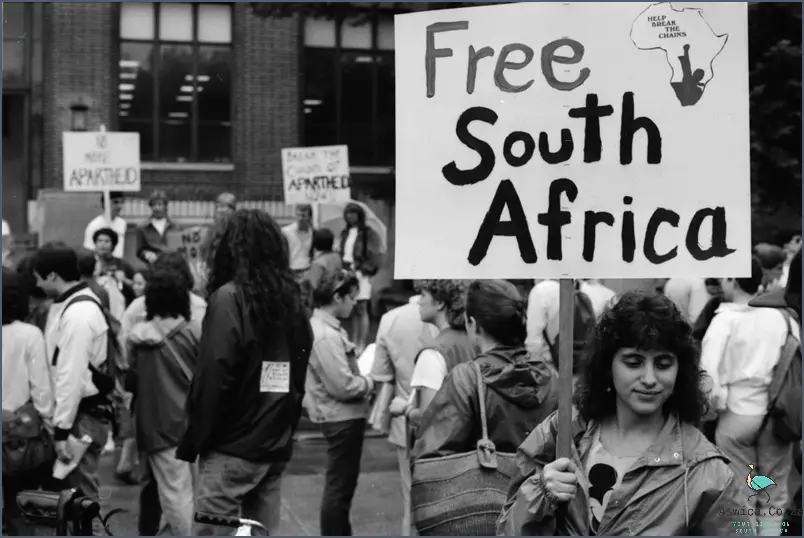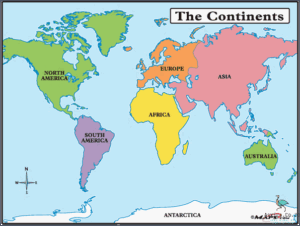
Apartheid in South Africa was a system of institutionalized racial segregation that existed from 1948 until the early 1990s. It was characterized by a rigid system of social control that enforced racial segregation and discrimination against the majority of South Africa’s black population. This system of racial segregation and subjugation was fought against by many South Africans, both black and white, who risked their lives in the struggle against it.
The African National Congress (ANC) was the main political organization leading the fight against apartheid. Founded in 1912, the ANC was initially a multi-racial organization, but by the 1950s, its leadership was firmly in the hands of black South Africans. The ANC led a variety of non-violent initiatives against apartheid, including the Defiance Campaign of 1952 and the Freedom Charter of 1955. In 1960, the ANC was banned by the apartheid government and many of its leaders were arrested and jailed.
The South African Students’ Organisation (SASO) was a major force in the struggle against apartheid. Founded in 1968, SASO was led by black students and was involved in various protests and demonstrations against apartheid. They were particularly active in the Soweto Uprising of 1976, which saw thousands of black students take to
Contents
- 1 Who Fought Against Apartheid In South Africa
- 2 Political Activists – discussing the people who fought against apartheid by demonstrating and engaging in civil disobedience
- 3 International Pressure – outlining the involvement of the United Nations and other countries in the fight against apartheid
- 4 Cultural Influence – exploring how music, literature and other forms of art were used to oppose the system of apartheid
- 5 Conclusion
Who Fought Against Apartheid In South Africa
The fight against apartheid in South Africa was an arduous journey, with many brave individuals leading the way. Among them was Nelson Mandela, who was instrumental in leading the African National Congress in its fight to end the oppressive system. Another leader of the anti-apartheid movement was Steve Biko, a civil rights activist who was imprisoned for his efforts and ultimately died in police custody. Other significant figures included Archbishop Desmond Tutu, who urged South Africans to stand against the oppressive system and Winnie Mandela, who was a vocal leader of the struggle and raised international awareness of the struggle. In addition to these key figures, many everyday South Africans also played a role in the fight against apartheid, including teachers, students, and workers, who all contributed to the successful effort to end the system of racial segregation.
Political Activists – discussing the people who fought against apartheid by demonstrating and engaging in civil disobedience
The fight against apartheid in South Africa was a long and arduous one, with many political activists rising up to oppose the oppressive system. These activists played a vital role in the eventual dismantling of apartheid and the ushering in of a new era of freedom and equality in South Africa.
Many of the political activists who fought against apartheid embraced civil disobedience as a form of protest. These activists were willing to take risks to draw attention to the injustices of the apartheid system, often participating in marches, vigils, and strikes. Several of the most famous activists in South Africa, such as Nelson Mandela, Walter Sisulu, and Steve Biko, were members of the African National Congress (ANC), an organization that was committed to ending apartheid.
Other political activists worked within the legal system to challenge the laws of apartheid. Individuals such as Alan Boesak, Desmond Tutu, and Albie Sachs took part in litigation, arguing that the laws of apartheid were unconstitutional and violated the rights of all South Africans. They also worked to raise awareness about the injustices of apartheid, speaking out in public and challenging the government to recognize the rights of all South Africans.
In addition to those who worked within the legal system, others took part in direct action. Activists such as Dennis Brutus and Emma Mashinini engaged in acts of civil disobedience, often risking their own safety to protest the oppressive laws of apartheid. These individuals were willing to take part in non-violent actions such as boycotts, hunger strikes, and sit-ins in order to draw attention to the injustices of apartheid.
The fight against apartheid in South Africa was a long and difficult one and could not have been won without the brave efforts of the political activists who fought against it. These individuals put their own safety on the line to oppose a system that denied basic rights to the majority of South Africans. Through their efforts, apartheid was eventually abolished in South Africa and a new era of freedom and equality began.
International Pressure – outlining the involvement of the United Nations and other countries in the fight against apartheid

Apartheid in South Africa was a system of institutionalized racial segregation and oppression that began in 1948 and lasted until 1994. The brutal system of racial segregation was met with international condemnation and scrutiny, with the United Nations and other countries playing a major role in the fight against apartheid.
The United Nations was at the forefront of the fight against apartheid, with the UN Security Council passing Resolution 134 in 1962, which condemned South Africa’s policy of racial discrimination and segregation. The UN further passed Resolution 181 in 1963, which declared that the Government of South Africa should cease its policy of apartheid and racial discrimination.
In addition to the UN, other countries around the world also played a crucial role in the fight against apartheid. In 1985, the United States passed the Comprehensive Anti-Apartheid Act, which imposed sanctions on South Africa and prohibited US corporations from doing business with South Africa. The United Kingdom also imposed economic sanctions on South Africa in 1986 in an effort to pressure the South African government to end apartheid.
In addition to economic sanctions, numerous countries around the world also provided financial and material support to anti-apartheid organizations in South Africa. For example, the African National Congress (ANC) received considerable financial and material support from countries such as the Soviet Union, Cuba, and East Germany.
The international pressure on South Africa to end apartheid was immense, and by the 1990s, the country’s apartheid system was beginning to crumble. In 1994, Nelson Mandela was elected as South Africa’s first black president, marking the official end of apartheid in the country.
The fight against apartheid was a long and arduous one, and it was only through the efforts of the United Nations and other countries around the world that the brutal system of racial segregation was finally brought to an end.
Cultural Influence – exploring how music, literature and other forms of art were used to oppose the system of apartheid
The fight against apartheid in South Africa was a long and arduous one, spanning decades of civil unrest and international condemnation. While the primary conflict was fought in the court of law, many of the resistors to the oppressive system of apartheid used music, literature, and other forms of art to express their individual and collective grievances.
Music was a primary vehicle of protest, with many musicians writing songs that were directly critical of the government and its policies. Artists such as Miriam Makeba and Hugh Masekela wrote songs that were both overtly and implicitly critical of the system, while others such as Abdullah Ibrahim and the Soul Brothers found ways to express their frustrations and anger through their music. This music was an integral part of the anti-apartheid movement, providing a voice for those who felt silenced by the laws of the state.
Literature was also used as a form of protest against apartheid. Authors such as Nadine Gordimer and J.M. Coetzee wrote stories and novels that directly opposed the system, while others such as Athol Fugard and Bessie Head used their writing to explore the themes of racism and oppression. This literature provided a powerful platform for those who felt silenced by the laws of the state, and their works continue to be read and studied today.
Other forms of art such as theatre and film were also used to oppose the system of apartheid. Various plays and films were produced that explored the themes of oppression and injustice, and were used to spread awareness of the situation in South Africa. These works were often met with resistance from the government, and were frequently banned or censored.
The use of music, literature, and other forms of art was a powerful way for those who sought to oppose the system of apartheid to have their voices heard. These forms of expression provided a platform for those who felt silenced by the laws of the state, and allowed them to express their grievances in a way that was difficult for the government to ignore. The works of these artists continue to be studied and appreciated today, and serve as a reminder of the power of art to effect real change.
Conclusion
The fight against Apartheid in South Africa was a long and hard-fought battle that was ultimately successful. The struggle against racial segregation and oppression was led by a diverse group of individuals and organizations, both within South Africa and around the world. These included political activists, lawyers, students, labour unions, churches, and international organizations. The most notable of these were the African National Congress (ANC), the Pan Africanist Congress (PAC), and the South African Communist Party (SACP). Together, they worked to mobilize resistance to the Apartheid regime, advocating for peaceful protest, civil disobedience, and sanctions. They also worked with the international community to apply pressure on South Africa to end apartheid. In the end, the efforts of the people of South Africa, both at home and abroad, finally helped to bring about the end of apartheid and the establishment of a democratic, multiracial society.




